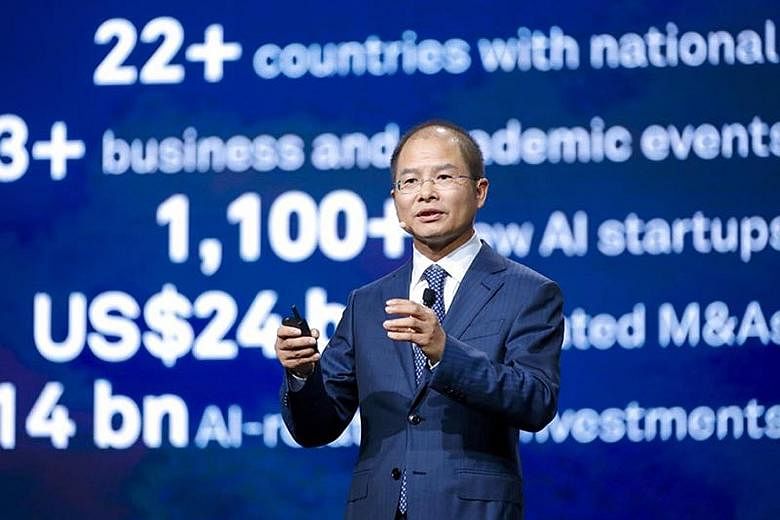Technology giant Huawei launched two artificial intelligence (AI) chips yesterday that have widespread applications and point to the firm's wider ambitions in the industry.
The company, China's biggest mobile phone maker, will use the chips in its servers, mobile data centres, cloud computing and Internet of Things devices and consumer gadgets.
Huawei's push into AI chips comes as China looks to develop its semiconductor industry and be less dependent on imports.
The ongoing trade war with the United States has made this a more urgent task as China relies heavily on American-made chips to make mobile phones, telecommunications equipment and computers.
Beijing has set out a plan for 40 per cent of all smartphones sold in the country to be produced with locally made chips by 2025.
While Huawei is betting big on making its own AI chips, with another three in the series to be launched next year, chairman Eric Xu said in a briefing yesterday that the firm does not plan to sell its chips as standalone components to its customers.
-
40%
Proportion of smartphones sold in China to be produced with locally made chips by 2025, according to Beijing's plan.
He added that he sees no direct competition with chipmakers like Qualcomm and Nvidia from the US.
Huawei has been banned from selling telecoms equipment in the US for several years on security concerns as the American authorities allege that its technology can be used to spy on customers. In August, the firm was also barred from participating in Australia's 5G roll-out on similar grounds.
Huawei has repeatedly refuted such allegations.
Mr Xu also outlined the firm's ambitions to be a major AI player, in a keynote speech at the start of the two-day Huawei Connect Conference in Shanghai, an annual gathering to showcase its latest developments.
The firm is betting that AI will "change all industries and organisations on earth". It predicts that by 2025, there will be at least 40 billion personal smart devices globally and 90 per cent of smart device users will have a digital assistant. By then, it says, 86 per cent of companies will be using big data, and AI services will be "as prevalent as the air we breathe".
Mr Xu believes the business potential of AI is immense as only about 4 per cent of firms have invested in AI technology. Only about 10 per cent of the smartphones in the market last year were equipped with AI capabilities. And for every 100 AI jobs, there is only one qualified person available, he added.
At a briefing later, he described AI as "general purpose technology" that can be used across the economy. He noted that it has presented Huawei with new opportunities, helped strengthen its existing products and services, and helped improve its internal operation management to become more efficient and competitive as a whole.
"Our smartphone business is a testament to that," Mr Xu told Chinese and international reporters as he fielded questions in an hour-long briefing.
The world's No. 2 smartphone brand by sales volume is on track to sell 200 million phones this year, up from 153 million units last year, thanks to its new AI-capable phones with its Kirin 970 chips, he noted.
"This is a surprising result for us. We hadn't expected such large sales when we started on making phones with AI capabilities."

